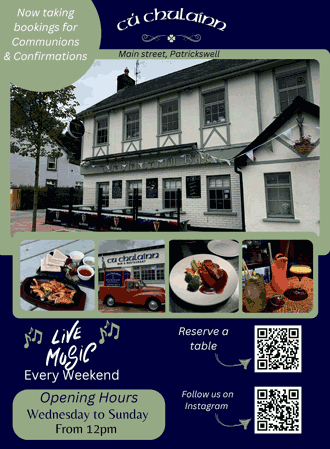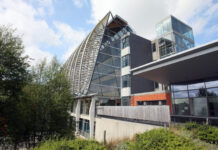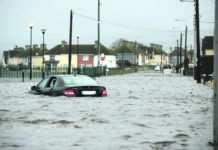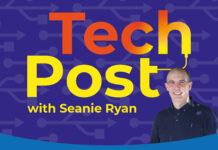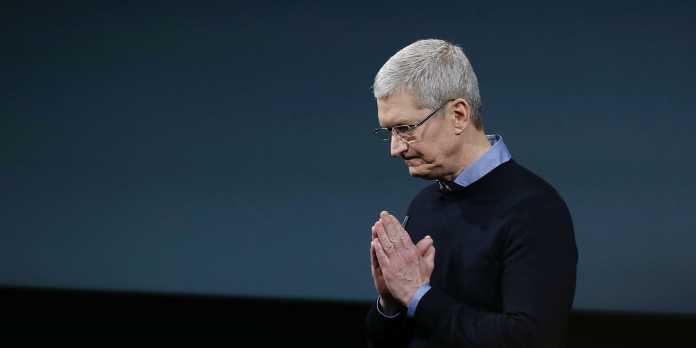
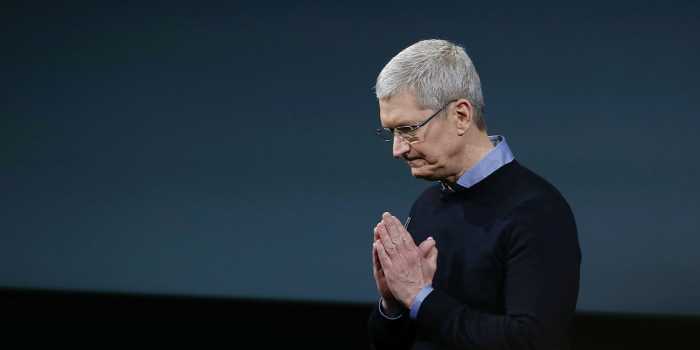
THERE it sat, all alone on the path, slightly dirty, slightly damp, but fully intact: A fifty euro note, just waiting for someone to pick it up.
That someone was me, and pick it up I did. As I stuffed it in pocket, furtively looking behind to make sure no one was watching, I momentarily hesitated; what about the poor soul who’d dropped this?
It could have been an elderly lady, a struggling single parent, an impoverished student. But I wasn’t exactly rolling in it myself, in fact I was skint, badly in need of a cash injection. So, I did what most people would do, I walked away with a skip in my step, plans for the money already forming in my mind.
That’s what most people would do, but the Irish Government aren’t most people.
Faced with a similar dilemma, they have chosen to pick up the banknote, look at it curiously and put it back where they found it. Rather than accept this gift from the heavens, this €13 billion windfall, they have walked away and left it for its cash-hungry owner to retrieve it at a later date.
Imagine if they did pocket the dough, though. How would they spend it?
Clearly the emphasis would be on alleviating the housing crisis and ensuring that our hospitals contained enough beds for the sick and infirm. And something would need to be done about our rivers flooding their banks on a yearly basis too. A few new guard’s barracks wouldn’t go amiss either.
Alternatively, they could address some of the following issues..
Going for gold
Watching all those TEAM GB athletes claim medal after medal was a right pain, wasn’t it? It reached the point where you could barely turn on the BBC without seeing the Union Jack being hoisted up high. However, given that the British government invested £350 million in its Olympic programme such success was to be expected. But if £350 million gets you 67 medals, how many would €13billion get you? All the medals, that’s how many.
Information superhighway
For many years now, we’ve been told that it’s only a matter of time until the entire island of Ireland has super-fast broadband. One visit outside the environs of any major city will inform you that this day is still some way off. But with €13 billion to spend we could have a broadband network the envy of the world over. Your auntie Bridie out in Knockainey, who’d previously been getting 0.5Mbs on her miserable little dongle, could rock a 1000TB connection and use it to simultaneously Skype all four of her children out in Australia while downloading films that won’t be in the cinemas for another four years.
The fountain of youth
It’s all gone a bit quiet on the water charges front of late. This can only mean one of two things; Enda has forgotten about it, or, more likely, he’s lulling us into a false sense of security before hitting us with Water Charges 2.0. Of course, there is a third alternative: A new hi-tech water system, paid for by Apple. The water pouring from our taps would heal all our ails, keep us forever young and maybe even get us a little drunk during slow days in work.
The sunshine state
“It’d be a great country if you could put a roof on it”; or so the saying goes. But what if it didn’t have to be a joke, what if we could put a roof on it? No more outings to the beach spoiled by misty squalls and stubborn clouds. No more wedding days ruined by mini-tornadoes and horizontal rain. We’d live in permanent sunshine and could actually plan ahead, like people in normal countries. The drought might kill us, but after five winters of flooding that doesn’t sound so bad.
Road to riches
No sooner have the Luas drivers resolved their dispute than their Dublin Bus counterparts follow suit. Meanwhile, in the rest of the country, Bus Eireann and Iarnród Eireann remain on permanent strike, or at least that’s how it feels. Offering overpriced, unreliable services which decrease in frequency the further away from the capital you get, neither are helped by an infrastructure that brings to mind an Eastern Bloc communist state. The cost of fully upgrading our roads and railways has never been disclosed, but €13 billion would surely cover it.



